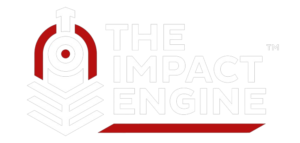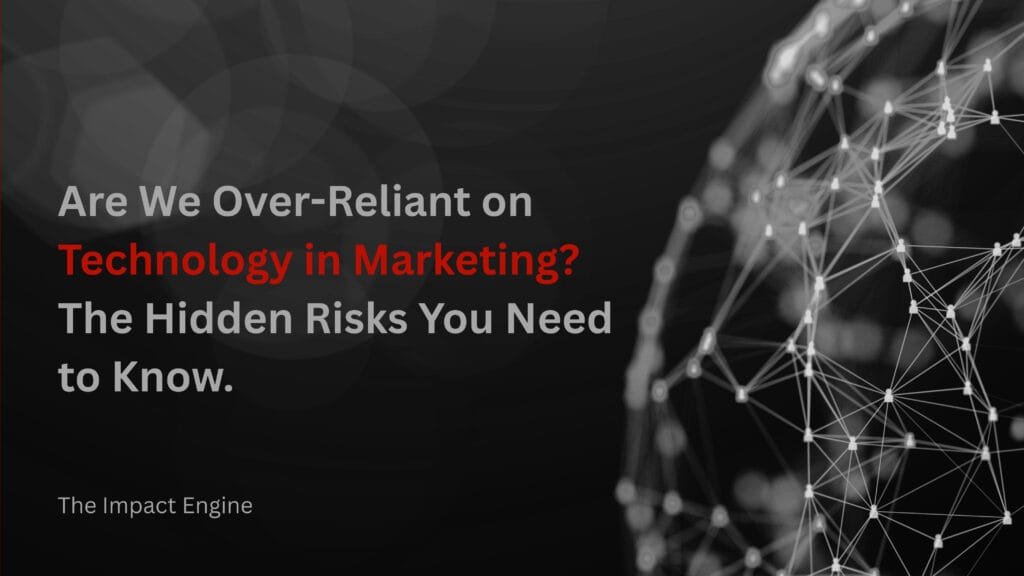There’s an uncomfortable truth many marketing agencies don’t want to acknowledge: are we becoming too reliant on technology? Is this dependence slowly eroding the core values of creativity, human intuition, and strategic thinking?
In this post, we explore the hidden risks of over-relying on technology in marketing and why it might be time to take a step back and reevaluate how we use these tools.
- The Illusion of Instant Success: Technology Isn’t a Magic Bullet
Tech tools, from automated email campaigns to AI-driven content generation, promise faster results with minimal effort. But here’s the problem: technology can’t replace the strategic thought and human insight that go into a successful marketing campaign. These tools might automate processes, but they can’t replicate the nuanced understanding of your audience, your brand, or the creativity required to truly resonate with people.
Too often, agencies fall into the trap of thinking that technology will do the heavy lifting. However, this approach overlooks the fact that automation, without a solid strategy, often results in generic, uninspired campaigns. No amount of data analytics can replace the intuition that a seasoned marketer brings to the table. The reality is that technology can only enhance a well-thought-out strategy, not create one from scratch. - Data Overload: When Too Much Information Becomes Paralysis
In the age of big data, marketers are bombarded with vast amounts of information every day. While it’s great to have access to detailed insights, there’s a real danger of becoming paralyzed by too much data. With so many metrics at our fingertips, it can be easy to lose sight of the bigger picture.
Focusing too much on the numbers can cause marketers to forget why they’re doing what they’re doing in the first place. Instead of relying on data to dictate every decision, marketers should also use their judgment and creativity to guide strategy. If data becomes the sole driver of marketing decisions, you risk falling into a rut of playing it safe rather than taking bold, creative risks that could lead to breakthroughs. - Tech Overload: Are We Losing Touch with Real People?
The more we automate and streamline marketing processes through technology, the more we risk disconnecting from the very audience we aim to reach. Digital tools may help us gather data, but they don’t give us real-time feedback on how people are actually feeling, thinking, or interacting with a campaign. When we’re constantly looking at numbers, metrics, and automated reports, we can lose touch with the human experience of the brand.
While tech is essential for scaling campaigns, it should never replace genuine human interaction. If marketing becomes too automated and detached, it can alienate consumers who crave authentic, personal experiences with the brands they support. - The Danger of Over-Optimization: Sacrificing Creativity for Efficiency
Another major pitfall of over-relying on technology is the temptation to over-optimize campaigns for efficiency. Sure, it’s great that we can track every click, every conversion, and every behavior. But when we’re so focused on optimizing for the best possible performance, we often end up sacrificing the creativity and originality that makes a campaign stand out.
Over-optimization leads to safe, formulaic campaigns designed purely for metrics—click-through rates, conversion rates, and ROI. But what about the campaigns that take risks, push boundaries, and stand out in the crowd? Creativity is what drives innovation, and when we focus too much on data points, we might miss opportunities for truly groundbreaking work. - So, What Should We Do? A Balanced Approach to Technology and Creativity
Here’s the bottom line: technology is a powerful tool that, when used correctly, can help marketers achieve better results, streamline processes, and optimize campaigns. But it should never replace the creativity, human intuition, and strategic thinking that make marketing truly effective.
At TIE, we advocate for a balanced approach. Use technology to enhance your work, not define it. Leverage data to inform decisions, but don’t let it dictate every move. Don’t let tech tools replace the personal connection and creative spark that great marketing requires. Remember, technology is only as good as the people who use it, and it’s the human touch that truly drives innovation.
In the end, the most successful marketing campaigns are those that blend the best of both worlds—technology and creativity. Strive for a balance where tech empowers, not controls, your work. Only then can you create truly memorable, impactful campaigns that resonate with real people.


